Jimmy Savile abuse: Key questions on the NHS scandal
- Published
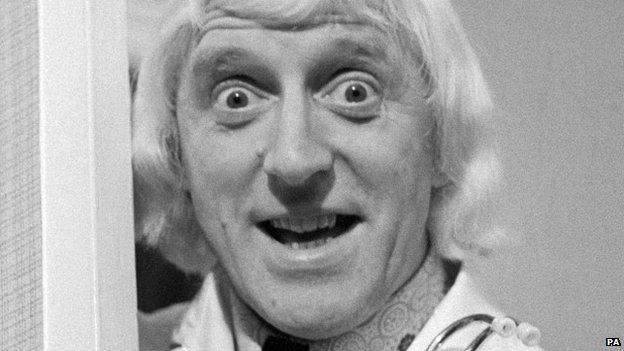
As the latest round of reports into alleged abuse by Jimmy Savile at NHS hospitals are published, the BBC looks at the background to the abuse scandal surrounding him.

How did the investigations into hospitals come about?
Jimmy Savile, a Radio 1 DJ and BBC presenter, died aged 84 in October 2011 - a year before allegations he had sexually abused children were broadcast in an ITV documentary.
The claims prompted more than 100 people to come forward to police, giving accounts of how they were sexually abused by Savile on NHS premises and in other places.
The Department of Health asked hospital trusts to investigate and appointed Kate Lampard QC to oversee the independent hospital investigations.
The findings of inquiries at 28 hospitals, external - including Leeds General Infirmary and Broadmoor psychiatric hospital - were published in June 2014.

What are the latest NHS reports?
They are delayed reports into Savile's activities at Stoke Mandeville Hospital in Buckinghamshire, Rampton Hospital in Nottinghamshire, Springfield Hospital in London, and Crawley Hospital in West Sussex.
Since June, a further wave of allegations emerged at some of the original 28 hospitals, and a further eight hospitals and one ambulance service. Fresh investigations have been carried out and reports have been published, external.

What did the initial NHS inquiries conclude?
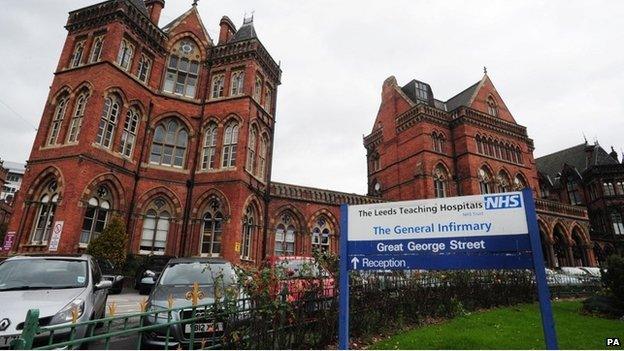
The reports on 28 hospitals found the late DJ subjected patients, visitors and staff across the country to "truly awful" sexual abuse for more than four decades.
Savile's victims at Leeds General Infirmary, external ranged from five-year-olds to 75-year-olds, and included men, women, boys and girls. The allegations included rapes.
At high-security hospital Broadmoor, external, Savile sexually abused at least five individuals, including two patients who were subjected to repeated assaults.
The reports found failings at the hospitals in the way complaints were passed on and how access to wards was controlled.

How else did police respond to the ITV report claims?
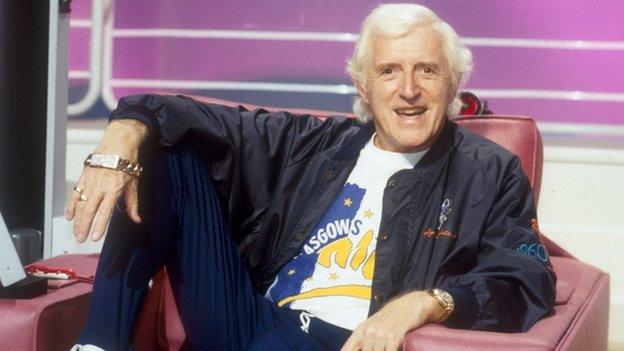
Jimmy Savile in a special edition of Jim'll Fix It
In 2012, the Metropolitan Police launched a criminal investigation called Operation Yewtree - following the broadcast of the ITV documentary.
The Met Police and children's charity the NSPCC also launched a review into claims Savile had abused women, girls and boys.
Their report,, external published in January 2013, went on to record 214 criminal offences, including 34 rapes, against Savile's name across the UK between 1955 and 2009.
The NSPCC said the former Jim'll Fix It and Top of the Pops presenter had abused at least 500 victims, including some as young as two.

Had there been allegations against Savile in his lifetime?
Yes, these include:
In 2007, Surrey Police questioned Savile over alleged child sex abuse in the 1970s. The CPS said there was insufficient evidence to prosecute
In 2008, Sussex Police received a complaint of a 1970 sexual assault in Worthing, but the victim was "unwilling to co-operate", police said
Savile was also named, although not publicly, during a 2008 police investigation into abuse at Haut de la Garenne children's home in Jersey
An internal CPS review, published in January 2013, concluded Savile could have been prosecuted while he was alive over three allegations of sexual offences if police and prosecutors had taken a "different approach".

What BBC inquiries are there into the scandal?
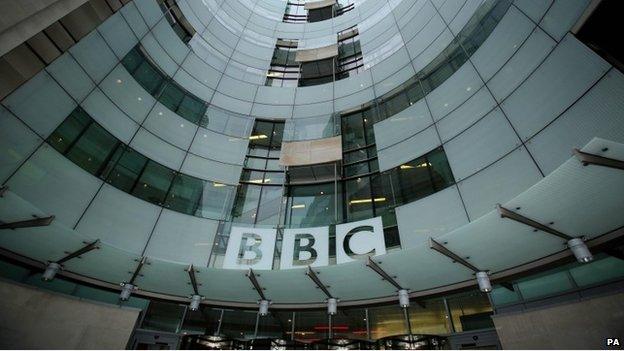
The BBC was criticised for failing to question Savile's behaviour or flag up abuse allegations during his long career at the corporation.
In December 2011, BBC Newsnight decided not to broadcast the results of a six-week investigation into claims Savile abused young people in the 1960s to 1980s. Savile had recently died.
In 2012, the BBC launched two inquiries into claims against Savile:
Pollard review: In December 2012 former Sky News head Nick Pollard published his review, external into Newsnight's shelved Savile report. He said there was "chaos and confusion" at the BBC but found no evidence of a cover-up over the decision not to broadcast
Dame Janet Smith review: Former Appeal Court judge Dame Janet Smith is yet to publish her findings on whether BBC culture and practices enabled Savile to carry out abuse at the corporation
Dinah Rose review: The QC looked at alleged sexual harassment at the BBC. The report, external led to the corporation overhauling its bullying and harassment policy

Were schools or children's homes affected?
The Department for Education told local authorities to investigate claims Savile had abused children at 21 children's homes and schools in England in the 1960s, 70s and 80s.
A total of 14 investigations were completed - 10 by local authorities, three by charities and one by an independent school.
Reports have been published but none of the investigations was able to reach firm conclusions about whether any alleged abuse took place or not.
Although many found the informant was credible, the lack of corroborating evidence has prevented them from reaching a definitive conclusion.

How has Savile's legacy been affected?
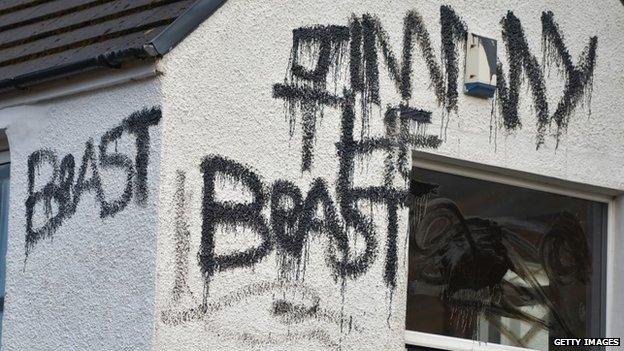
A cottage owned by Jimmy Savile in Glen Coe was vandalised shortly after the allegations came to light
Two charities set up in Savile's name, the Jimmy Savile Charitable Trust and the Jimmy Savile Stoke Mandeville Hospital Trust, announced their closure. His estate, valued at £3.3m, has been used to fund compensation claims.
Following the flood of allegations, various affiliations and commemorations to Savile's memory were removed - including a plaque in Scarborough and an inscription at Leeds Civic Hall.
A triple headstone marking Savile's grave in Scarborough was destroyed according to his family's wishes.